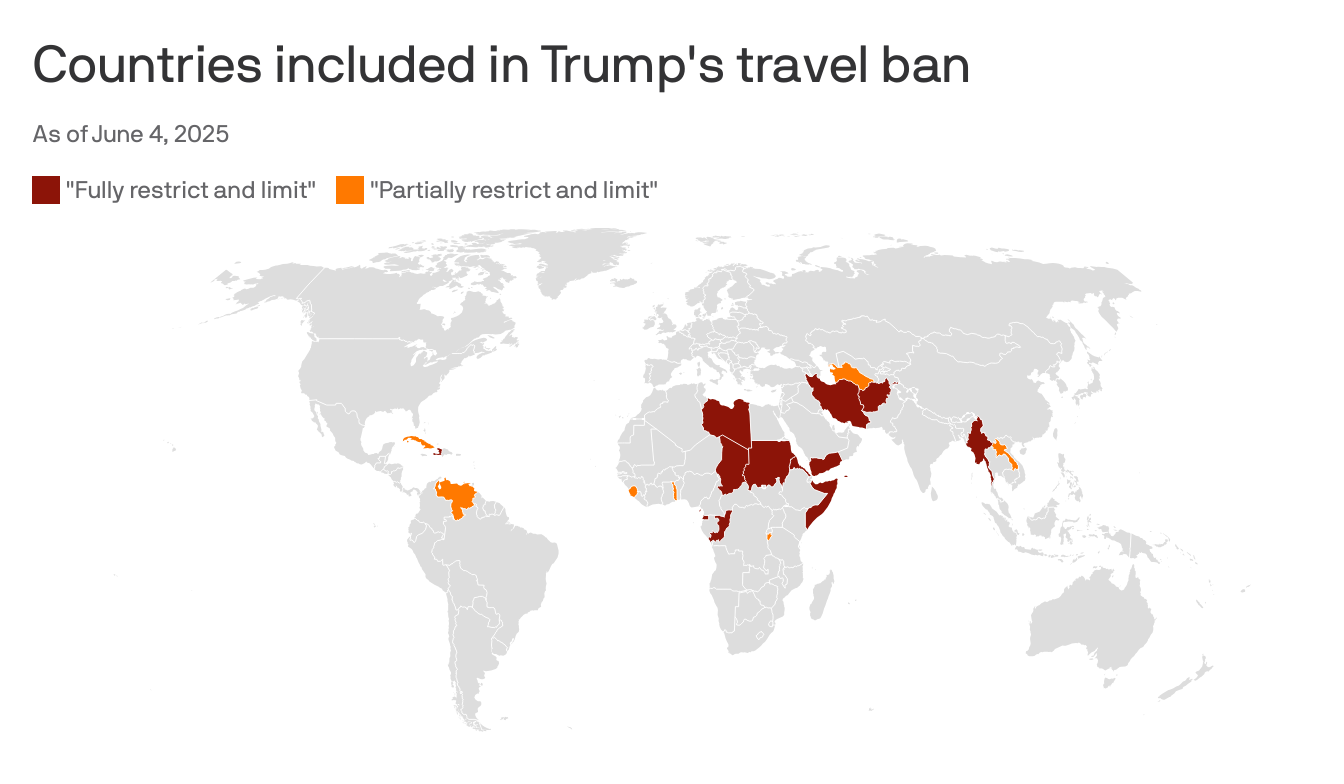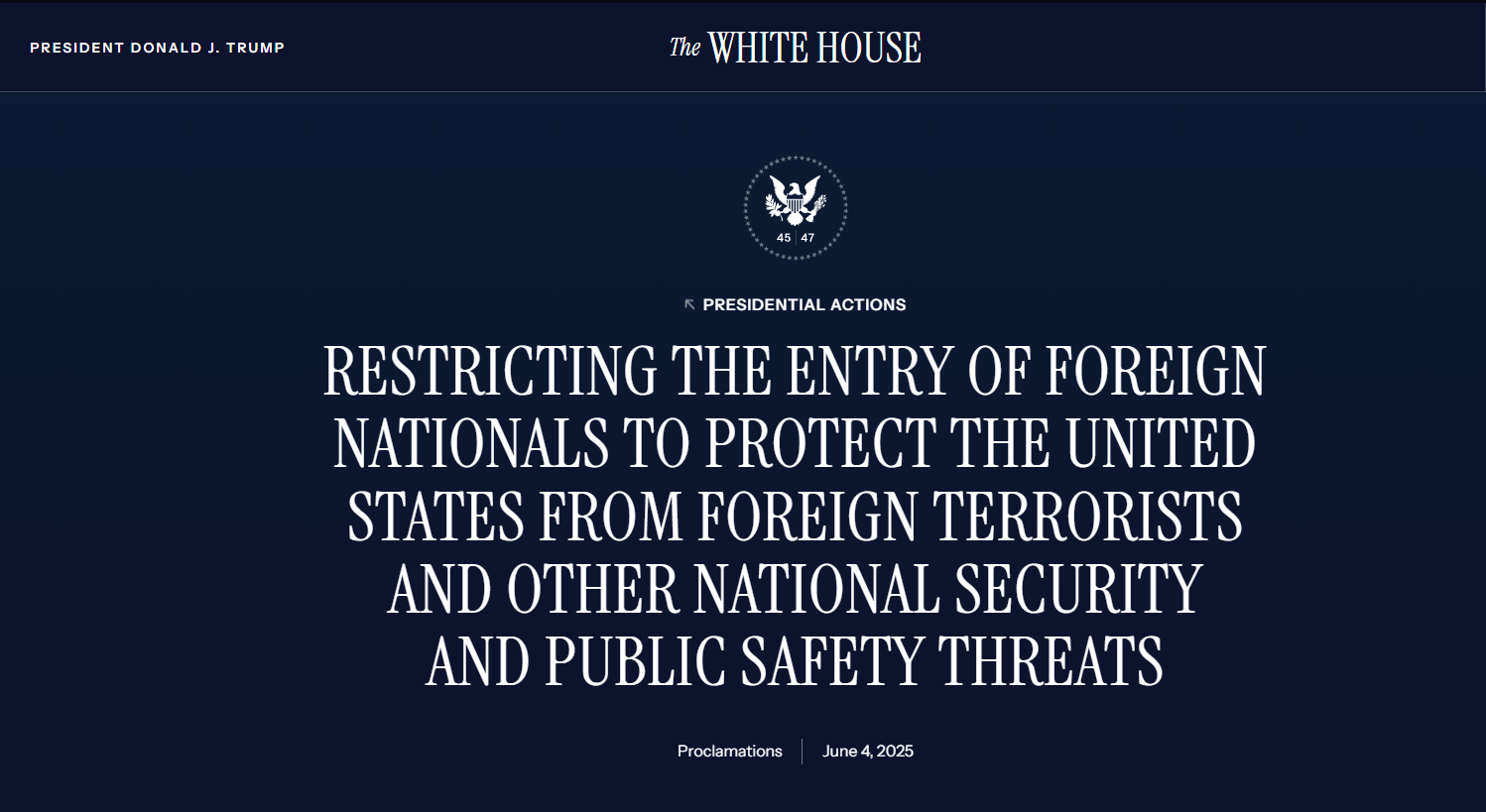President Donald Trump has signed a new proclamation reinstating and expanding travel restrictions on foreign nationals from 19 countries, citing national security and public safety concerns.
The directive, set to take effect on June 9, 2025, marks a significant move in the administration’s ongoing efforts to tighten immigration controls.
Full Travel Ban on 12 Countries
The proclamation imposes a complete entry ban on citizens from the following 12 countries:
-
Afghanistan
-
Myanmar (Burma)
-
Chad
-
Republic of the Congo
-
Equatorial Guinea
-
Eritrea
-
Haiti
-
Iran
-
Libya
-
Somalia
-
Sudan
-
Yemen
These nations were identified as having inadequate security vetting procedures and high rates of visa overstays, posing potential threats to U.S. national security.
Partial Restrictions on 7 Additional Countries
In addition to the full bans, the administration has placed partial restrictions on travelers from seven other countries:
-
Burundi
-
Cuba
-
Laos
-
Sierra Leone
-
Togo
-
Turkmenistan
-
Venezuela
These restrictions may include limitations on certain visa categories, enhanced security screenings, and mandatory in-person interviews at U.S. embassies or consulates.

The Justification
The administration cites concerns over insufficient information-sharing and identity verification processes in the affected countries. President Trump emphasized the need to prevent foreign nationals who may pose security threats from entering the United States, stating that the measures are necessary to protect American citizens and uphold national security.

The recent attack in Boulder, Colorado, involving an Egyptian national accused of targeting demonstrators, was highlighted as an example of the dangers posed by inadequate vetting. Although Egypt is not among the countries listed in the ban, the incident underscores the administration’s concerns.
Legal and Political Backlash From Democrats
The travel ban has drawn criticism from various quarters. Democratic lawmakers and immigrant rights groups have condemned the move as discriminatory and ineffective.
Senator Edward J. Markey (D-MA) argued that the ban would not enhance national security, while Representative Yassamin Ansari (D-AZ) labeled it as xenophobic and harmful to American values.
Advocacy organizations have also expressed concerns about the impact on families and individuals from the affected countries, particularly those seeking asylum or reuniting with relatives in the U.S.
The travel restrictions are scheduled to take effect at 12:01 a.m. EDT on June 9, 2025. The proclamation includes provisions for exceptions, such as for lawful permanent residents, individuals with valid visas, and those whose entry is deemed in the national interest.
The administration has indicated that the list of affected countries may be updated based on future assessments of security risks and cooperation levels. Countries demonstrating improvements in their vetting and information-sharing processes could see restrictions lifted, while others may be added to the list if new threats emerge.
President Trump’s reinstatement and expansion of the travel ban reflect a continued focus on stringent immigration policies aimed at safeguarding national security.
As the implementation date approaches, the directive is expected to face legal challenges and ongoing debate over its implications for U.S. foreign relations and domestic values.




